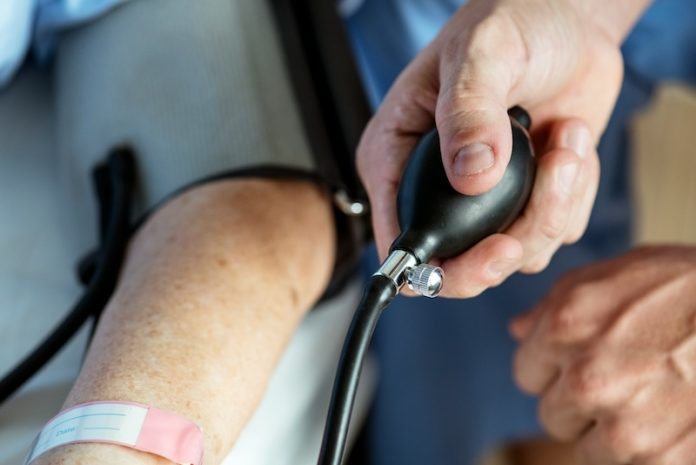
High blood pressure, or hypertension, affects nearly half of adults in the United States, according to statistics from the American Heart Association (AHA). This condition significantly raises the risk of heart attack, stroke, kidney disease, and other health issues.
Hypertension is defined as having a systolic blood pressure (the top number) of 130 or higher or a diastolic blood pressure (the bottom number) of 80 or higher.
A recent study from Rutgers University reveals that younger men and older women are more likely to have uncontrolled high blood pressure, even while taking medications. This means their blood pressure remains above healthy levels despite treatment.
These findings suggest that specific groups, particularly men under 50 and women over 70, may benefit from closer monitoring of their blood pressure.
The research analyzed health data from more than 13,000 people taking medication for high blood pressure.
This data came from the National Health and Nutrition Examination Survey, covering the years 1999 to 2018. Overall, the study found that 34% of participants had uncontrolled high blood pressure.
When researchers compared different age groups, they noticed striking differences between men and women. Among people in their 20s, men were 59% more likely than women to have uncontrolled hypertension.
This gap widened in their 30s, with men being 70% more likely to struggle with the condition. By their 40s, men were still 47% more likely than women to have uncontrolled high blood pressure.
However, this trend began to shift as people aged. By their 50s and 60s, men and women had similar odds of having uncontrolled blood pressure. But for individuals aged 70 and older, the pattern reversed.
Women in this age group were 29% more likely than men to have uncontrolled hypertension. This difference became even more pronounced among those in their 80s and older, with women being 63% more likely to face the problem.
The researchers emphasize the importance of increasing awareness about uncontrolled high blood pressure in these specific groups.
While younger men and older women may appear to have different health risks, both could benefit from tailored approaches to blood pressure management.
Why these differences exist remains unclear. The researchers suggest that additional studies are needed to understand the biological, social, and medical factors contributing to these patterns.
Hormonal changes, medication effectiveness, and differences in healthcare access or habits may all play a role.
This study underscores the importance of regular blood pressure monitoring and personalized care. For men under 50 and women over 70, more frequent checkups might help ensure that blood pressure is kept under control, reducing the risk of serious health complications.
The findings were presented at the American Heart Association’s virtual Hypertension Scientific Sessions and were led by Dr. Aayush Visaria. These results highlight the need for a more focused approach to managing high blood pressure in people of different ages and genders.
If you care about blood pressure, please read studies about unhealthy habits that could increase high blood pressure risk, and eating eggs in a healthy diet may reduce risks of diabetes, high blood pressure.
For more information about blood pressure, please see recent studies that early time-restricted eating could help improve blood pressure, and results showing 12 foods that lower blood pressure.
Copyright © 2024 Knowridge Science Report. All rights reserved.



